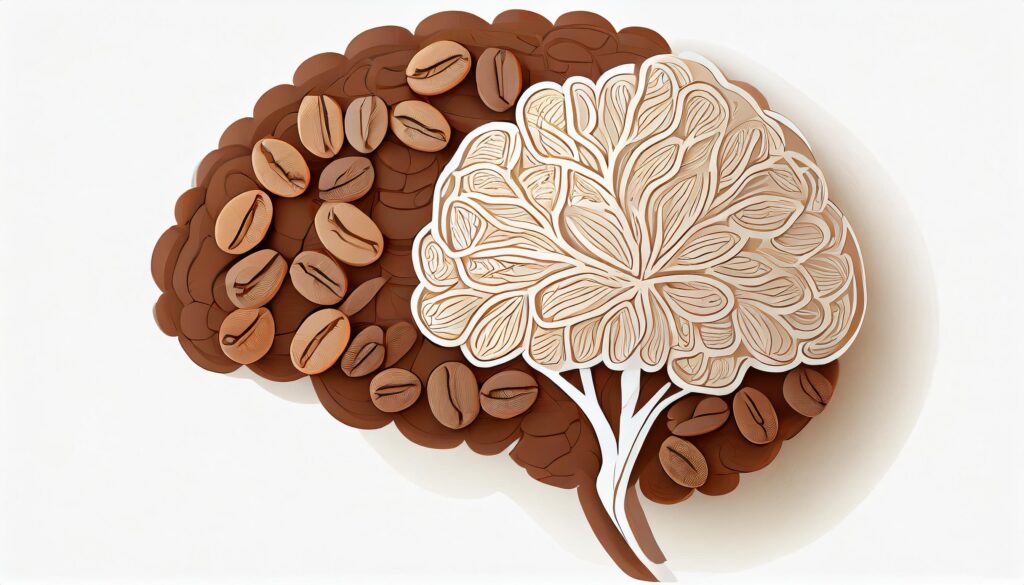Caffeine is a globally recognised energiser and the world’s go-to choice for enhancing alertness and concentration. For a lot of us, that comes in the form of the day’s first cup of coffee. But despite the ubiquity of caffeine and how frequently we consume it, many of us aren’t familiar with the detailed risks and benefits of caffeine consumption.

The ups…
Originally a naturally occurring stimulant originally found in the coffee bean, the isolation and reproduction of caffeine has allowed it to be included in everything from energy drinks to chocolate. Caffeine is absorbed quickly and efficiently by the body, and within five to thirty minutes of enjoying your first hit you’ll experience increased alertness, reduced fatigue, and that wonderful sense of “awakeness” that helps keep the world on-track1.
…and the downs
Like any other drug, there’s no such thing as a free lunch. Excessive caffeine intake can lead to an elevated heart rate with an unpleasant fluttering sensation in the chest, sweating, and irritability. At sustained or high levels of consumption this can manifest as higher blood pressure, insomnia, and anxiousness. All of these can be serious health issues, and it’s critical to be aware that the human brain can develop a caffeine dependence from even short periods of consistent use2.

Managing moderation
These risks don’t mean you need to swear off your latte entirely, but it is important to know how to consume it safely. The maximum daily safe dosage for an adult is somewhere between 200–400mg (roughly equivalent to 2–4 cups of coffee), although it’s important to note that this is just an average – listen to your body and dial back your usage if you need to. Given that caffeine is a stimulant and a mild diuretic, you should also ensure you’re drinking your recommended daily water intake (roughly 2.6L for men and 2.1L for women) to avoid dehydration3.

Cleaning up
Caffeine is a lynchpin of modern life, and many of us consume more than we think without realising. Make sure that after you kickstart your morning with a fresh cup or cold energy drink that you drink enough water and carefully manage any further caffeine intake throughout the day. If you’re still left with some questions about the ins and outs of caffeine, our Food Team has prepared a handy cheat-sheet for managing your intake that you can find here!
References
1. Health Direct 2023, Caffeine, www.healthdirect.gov.au, Health Direct , viewed 9 February 2024, <https://www.healthdirect.gov.au/caffeine#short-term>.
2. Health Direct 2023, Caffeine, www.healthdirect.gov.au, Health Direct , viewed 9 February 2024, <https://www.healthdirect.gov.au/caffeine#long-term>.
3. Health Direct Australia 2021, Drinking water and your health, www.healthdirect.gov.au, Health Direct , viewed 9 February 2024, <https://www.healthdirect.gov.au/drinking-water-and-your-health>.